Faculty members who have served the University of Mary Washington for at least 15 years and who have attained the rank of professor or associate professor are eligible to be considered for emeritus status. This honor, by action of the Board of Visitors, is bestowed this year upon the following distinguished member of the faculty.
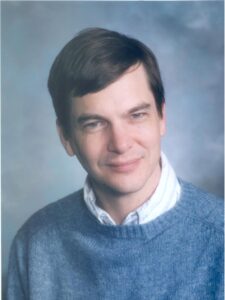
David K. Ambuel, Professor Emeritus of Philosophy
In the fall of 1992, shortly after receiving his Ph.D. in philosophy from Northwestern University, David Ambuel began teaching at Mary Washington. He has taught many key courses in the history of philosophy, including Plato, Aristotle and Greek philosophy, as well as on Hume and Kant. He is a master of ancient Greek, Sanskrit, French, German and Thai. An internationally renowned scholar on Plato, he is the author of several books on the subject. In addition to being a Kurt F. Leidecker chair in Asian Studies, he is co-director of the Leidecker Center for Asian Studies. Dr. Ambuel also served as program coordinator for the Contemplative Studies Program and was a partner in creating the Zen Garden.
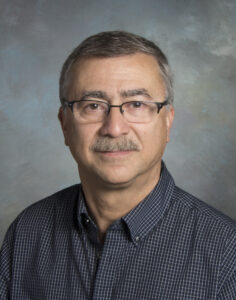
Mehdi Aminrazavi, Professor Emeritus of Philosophy and Religion
Mehdi Aminrazavi brought his expertise in Islamic philosophy and theology and other non-Western religions to Mary Washington in 1992. He received bachelor’s and master’s degrees from the University of Washington and an additional M.A. and Ph.D. from Temple University. In 1997 he was awarded the Alumni Association Outstanding Young Faculty Award. Throughout his career he has published more than 65 articles and book chapters, 15 book reviews and 14 books on Islamic and Persian literature and philosophy. Dr. Aminrazavi served as a Kurt F. Leidecker chair and co-director of the Leidecker Center for Asian Studies. A driving force in the creation of the minor in Middle Eastern studies, he has also served as the director of the Khatib Program in Religion and Dialogue, which explores all aspects of interreligious peace and coexistence.
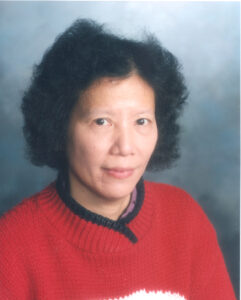
Yuan-Jen Chiang, Professor Emerita of Mathematics
Yuan-Jen Chiang landed at MWC in the fall of 1989, a freshly minted Ph.D. from Johns Hopkins University. She also earned a B.S. from National Taiwan Normal University in Taipei. She taught at all levels of the mathematics curriculum and has directed more than 80 individual studies. Under her tutelage, students have given presentations at UMW Research and Creativity Day, regional math conferences and at Mathematical Association of America meetings. Dr. Chiang served the college and the university on several committees, including promotion and tenure, curriculum, academic affairs, and faculty development and grants. Within the department, she served as calculus reforms chair, calculus coordinator, outcome assessment co-coordinator and major advisor. She authored more than 40 research articles and reviews for over 150 publications, as well as a book on her specialty – harmonic maps. She established the Hai Hung Foundation, a nonprofit organization, in 2000. The foundation published six volumes of The Voice of Han, and has awarded scholarships to 248 UMW students and Chinese students.
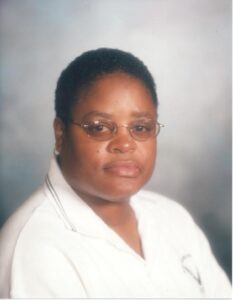
Deborah A. Conway, Associate Professor Emerita of Health and Physical Education
Dee Conway received an A.A. from Ferrum College, and a B.A. and M.Ed. from Lynchburg College. She arrived at Mary Washington in 1987 to coach volleyball and softball, and is the first and only coach in UMW softball history. She earned the Capital Athletic Conference Coach of the Year honors for softball six times and for volleyball twice. In addition she taught classes in weight training, individual exercise and step aerobics. Since 2018 she has served as the University’s assistant athletic director for compliance.
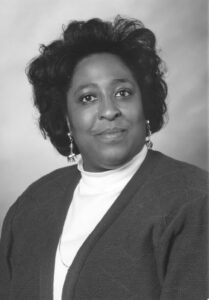
Venitta McCall, Professor Emerita of Education
Venitta McCall came to Mary Washington as program director for Rappahannock Region Upward Bound in 1980, leaving behind a career as a public school teacher. She earned a B.S. at Niagara University, an MBA from the University of North Florida and an Ed.D. from Virginia Tech. She joined the faculty in 1989 and also served as director of the James Farmer Scholars Program. Dr. McCall has served as mentor for both the Dorsey Scholars and the peer tutors in the PASS Leaders program. In 2005, she became the first woman of color to be promoted to full professor at the University. She has partnered with numerous faculty for grants from the Virginia Department of Education, the State Council of Higher Education for Virginia, the U.S. Department of Education and the U.S. Department of Labor. She is the 2015 winner of UMW’s J. Christopher “Topher” Bill Outstanding Faculty Service Award.
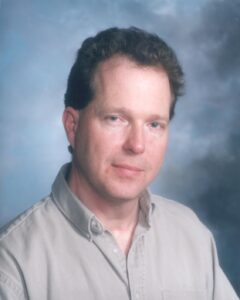
Bruce R. O’Brien, Professor Emeritus of History
Bruce O’Brien has a B.A. from St. Olaf College and an M.A., M.Phil. and Ph.D. from Yale University. He came to Mary Washington in 1990 to teach medieval history. In his 33 years here, he has taught classes on the history of Europe in the Middle Ages, history of Ancient Greece, Anglo-Saxon England, forgery and history from antiquity to the present. Dr. O’Brien has published two books and co-edited two others. He has presented papers and talks to academic institutions and organizations worldwide on topics related to medieval English. He initiated the Early English Laws Project in London to re-edit, translate and comment on all English legal codes, edicts and treatises produced up to and including Magna Carta 1215. He is the past president of the Haskins Society and a fellow of the Royal Historical Society (UK), and he has been a visiting fellow at Harvard Law School.
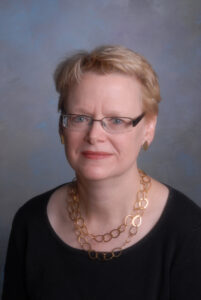
Marjorie Och, Professor Emerita of Art History
Marjorie Och joined the faculty in 1984, with a B.A. from Towson University and having studied at the Institute for Foreign Study in Florence, Italy. While working at Mary Washington she completed her M.A. from the University of Delaware and her Ph.D. from Bryn Mawr College. Dr. Och has taught courses on Western art, Italian and Spanish Baroque, high Renaissance and Mannerism, as well as museum studies and methods in art history. During her career, she has led the institution in many capacities, including as department chair; career advisor for art history; scholarship coordinator; and a member of the Museum Studies Minor Committee, the Women’s, Gender and Sexualities Studies Committee, the President’s Task Force on Sexual Assault, the Promotion and Tenure Committee, the Women’s History Month Committee and the Faculty Development and Grants Committee. She has published numerous articles on Margaret Sutton and Vittoria Colonna and on the subject of women in art. She is working on a book manuscript titled Cities in Vasari’s “Lives of the Artists.”
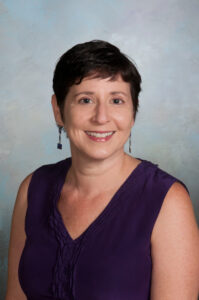
Allyson Poska, Professor Emerita of History
Allyson Poska arrived at Mary Washington after receiving her Ph.D. from the University of Minnesota. She also holds a B.A. from Johns Hopkins University and an M.A. from Brown University. Primarily a social historian, she regularly teaches upper-level courses on the histories of Spain and Latin America and frequently offers courses in women’s history and on gender issues. She played a key role in the University’s Women’s History Month events and was an advocate and driving force for the Women’s, Gender and Sexuality Studies Program, which she headed for its first six years. Along with serving on many University committees, Dr. Poska is a prolific scholar, publishing articles, book reviews, conference presentations and books. Her most recent book, Gendered Crossings: Women and Migration in the Spanish Empire (New Mexico, 2016), was awarded the Best Book Prize for 2016 from the Society for the Study of Early Modern Women. She is the 2020 winner of UMW’s J. Christopher “Topher” Bill Outstanding Faculty Service Award and the 2023 Waple Faculty Award for Professional Achievement.
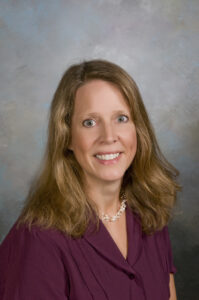
Margaret A. Ray, Professor Emerita of Economics
After completing a B.S. in economics at Oklahoma State University, Margaret Ray began her career in the field of economics, ultimately earning her Ph.D. in economics at the University of Tennessee. She came to Mary Washington in 1993. During her 30 years at Mary Washington, Dr. Ray taught a wide variety of courses including microeconomics, econometrics, environmental economics, industrial economics, urban economics, economic development, money and banking and various MBA courses. Her extensive research and expertise in economic education, industrial organization and regional economics has been widely shared in publications, book chapters and presentations at leading economic association conferences. She was department chair and director of the Center for Economic Education and served on numerous committees.
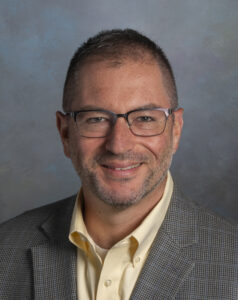
David A. Rettinger, Professor Emeritus of Psychology
With a B.A from the University of Michigan and an M.A. and Ph.D. from the University of Colorado, David Rettinger brought his interest in decision-making, memory and methodology to UMW in 2006. He has taught classes on introduction to psychology, history of psychology, research methods, science fiction and psychology and seminars on judgment and decision-making. He has advised the student-run Honor Council and worked on the task force to create the Honors Program. He served as director of academic programs and executive director of the Center for Honor, Leadership and Service. He also was advisor of the Jewish Student Association and Hillel. He co-authored numerous research papers on academic integrity, many of which were collaborative works with students.
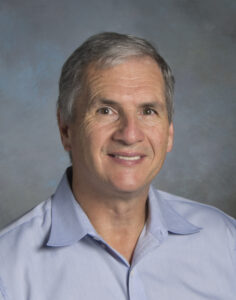
Brian Rizzo, Associate Professor Emeritus of Geography
Brian Rizzo joined the UMW faculty in 2007 after many years in the private sector. He received his bachelor’s and master’s degrees from the University of Western Ontario and his Ph.D. from the University of Virginia. Specializing in geographic information systems (GIS), Dr. Rizzo established the Center for Spatial Analysis and Research, known as CESAR, which attracted grants and served as a method of outreach to promote GIS within the Fredericksburg community. Dr. Rizzo is a huge proponent of geospatial techniques, and promoted use of GIS by UMW faculty, holding workshops and responding to individual questions from faculty, who now incorporate GIS into their own coursework. As director of the GIS programs, he was instrumental in developing not only the certificate program in GIS but the undergraduate GIS program and the Master of Science in Geospatial Analysis (MSGA).